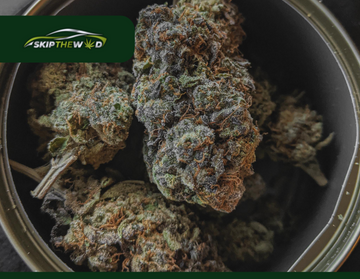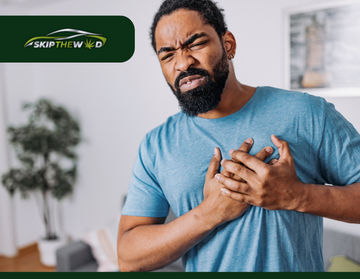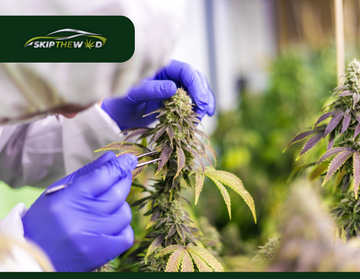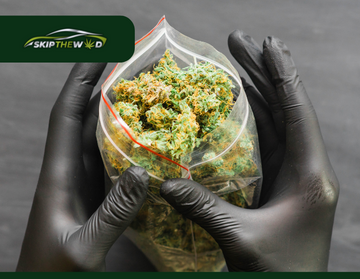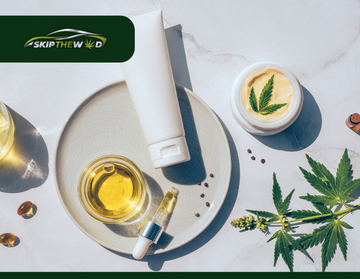Cannabis has long been a topic of debate in many aspects of society, but its role in sports is a relatively new and evolving discussion. As the legalization of cannabis expands across the globe, athletes, trainers, and medical professionals have begun exploring its potential benefits and risks for performance and recovery. With increasing interest in how cannabis, particularly CBD (cannabidiol) and THC (tetrahydrocannabinol), interacts with the body, questions surrounding its impact on athletes have come to the forefront of sports conversations.
In this article, we will explore the relationship between cannabis and sports, focusing on how it affects athletic performance, aids in recovery, and the regulations surrounding its use in competitive environments.
Cannabis and Athletic Performance: Fact vs. Fiction
One of the most hotly debated aspects of cannabis use in sports is its effect on athletic performance. While some claim that cannabis can enhance focus and help athletes get “in the zone,” others argue that its psychoactive properties could impair coordination, reaction times, and overall performance.
Potential Benefits for Performance
In particular, CBD has been studied for its potential to reduce anxiety and stress, which may be beneficial for athletes in high-pressure situations. Sports like golf, archery, or yoga, which require steady concentration and a calm mindset, could theoretically benefit from the calming effects of CBD without the intoxicating effects of THC.
Endurance athletes, such as marathon runners or cyclists, have also shown interest in CBD’s potential to reduce inflammation and manage pain during long bouts of physical activity. By mitigating inflammation, some athletes believe they can perform at a higher level for a longer period of time.
Risks and Limitations
While there are anecdotal reports of cannabis improving focus or relaxation during competition, the use of THC can impair coordination, reaction time, and motor skills, making it unsuitable for many fast-paced or highly technical sports like basketball, football, or tennis. Additionally, THC’s psychoactive effects could reduce motivation or cause fatigue, which would directly hinder performance.
Moreover, research is still inconclusive regarding cannabis's overall impact on exercise performance. Most experts agree that while CBD may offer certain therapeutic benefits, THC’s impairing effects make it less suited for competitive sports, especially in high-stakes environments where precision and speed are critical.
Cannabis for Recovery: A Game Changer?
While cannabis may not be the best performance enhancer, it has gained significant attention for its role in recovery. Athletes often experience muscle soreness, inflammation, and injuries that require treatment, and many have turned to cannabis as a natural alternative to traditional painkillers and anti-inflammatory drugs.
Pain Management
One of the most well-documented uses of cannabis in sports is for pain relief. Both THC and CBD interact with the body’s endocannabinoid system (ECS), which plays a role in regulating pain, inflammation, and immune function. CBD, in particular, has been praised for its non-intoxicating pain-relief properties, making it an attractive option for athletes seeking to avoid the addictive qualities and side effects of opioids or other pharmaceutical pain medications.
Inflammation Reduction
In addition to pain relief, cannabis is known for its anti-inflammatory properties. After intense physical activity, inflammation in the muscles and joints is a common issue, and if left untreated, it can lead to long-term injury or hinder athletic performance. Many athletes now use CBD creams, lotions, or edibles to manage inflammation, reduce soreness, and accelerate the recovery process.
CBD’s anti-inflammatory effects have been studied in sports involving high-impact activities like rugby, football, or mixed martial arts (MMA). By reducing swelling and improving blood flow, CBD could help athletes recover more quickly from minor injuries or heavy training sessions.
Sleep Improvement
Recovery isn’t just about treating pain and inflammation; sleep is a critical component. Studies have shown that adequate sleep is essential for optimal recovery, muscle repair, and overall athletic performance. Many athletes struggle with sleep disorders or insomnia, often caused by anxiety, stress, or discomfort after games or training sessions.
CBD has been linked to improved sleep by promoting relaxation and reducing anxiety, making it easier for athletes to get the rest they need. While THC is known for its sedative effects, it may cause drowsiness or morning fatigue if taken in high doses, so CBD is typically the preferred option for athletes looking to optimize their sleep cycle without the grogginess.
Regulation of Cannabis in Sports
As cannabis becomes more widely accepted and legalized, questions about its regulation in sports have become increasingly relevant. Governing bodies, from local athletic commissions to international organizations like the World Anti-Doping Agency (WADA), have had to navigate the changing legal landscape and the varying views on cannabis use among athletes.
WADA’s Stance on Cannabis
The World Anti-Doping Agency (WADA), which oversees drug testing for many international sports, has historically included THC on its list of banned substances due to its potential to impair performance and pose health risks. However, in 2018, WADA removed CBD from its prohibited substances list, acknowledging its therapeutic potential without the psychoactive effects of THC.
This change has allowed athletes to legally use CBD for recovery and pain management in competitive sports, while still banning THC during competition periods. Athletes are still subject to THC testing and could face penalties if their THC levels exceed the allowed threshold, which varies by organization and country.
THC Testing in Professional Sports
Different sports leagues have varying rules regarding cannabis use. For example, the National Football League (NFL) and National Basketball Association (NBA) in the United States have traditionally banned the use of THC, but both leagues have recently softened their stance, especially as cannabis has become legal in many states. The NFL has increased the allowable threshold for THC and no longer suspends players for testing positive. Similarly, the NBA has relaxed its testing policies and now focuses on treating substance abuse rather than punishing players for cannabis use.
In contrast, leagues like the UFC have taken a more lenient approach, with the organization openly discussing the benefits of CBD and even partnering with CBD companies to support athlete recovery.
The Challenge of Fair Play
One of the challenges surrounding cannabis regulation in sports is ensuring fair play. While cannabis may offer recovery benefits, particularly for pain management and inflammation, questions remain about whether it provides an unfair advantage to athletes using it over those who rely solely on traditional recovery methods.
For instance, if an athlete uses cannabis to recover faster and perform better in the next competition, should that be considered a performance enhancement? Similarly, if an athlete uses THC to relax and reduce anxiety before a big event, is that an unfair advantage? These questions continue to shape the debate on how cannabis should be regulated in competitive sports.
The Future of Cannabis in Sports
As more research emerges on cannabis's effects on athletic performance and recovery, the future of cannabis in sports looks increasingly promising. CBD, in particular, is likely to continue gaining acceptance as a valuable tool for athletes in managing pain, reducing inflammation, and improving sleep without the risks associated with opioids or other pharmaceuticals.
The sports industry is also seeing a growing interest in cannabis-based recovery products, with many athletes endorsing CBD oils, creams, and supplements. This shift toward natural, plant-based solutions for recovery aligns with the broader wellness trend seen across sports and fitness.
However, as cannabis regulations vary widely across different countries and sports organizations, athletes must stay informed about the rules governing cannabis use in their respective fields. Those competing internationally, in particular, must be mindful of the varying legal status and testing requirements around THC and CBD use.
Conclusion
Cannabis, particularly CBD, has emerged as a promising option for athletes looking to enhance recovery and manage pain in a natural and effective way. While THC’s role in athletic performance is still debated due to its psychoactive effects, CBD has gained widespread acceptance for its potential health benefits, without the “high” associated with cannabis.
At Skip the Weed, we offer a range of cannabis strains to support athletes in their recovery journey. For those seeking a potent and relaxing experience, try our Granddaddy Purple strain, known for its deep body relaxation effects, perfect for unwinding after a tough workout. For athletes who need a burst of energy during the day, our Sour Diesel strain provides a smooth, uplifting effect that can help keep you focused and energized. With high-quality products that fit your lifestyle, Skip the Weed is your partner in optimal performance and recovery.

